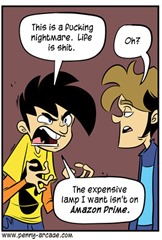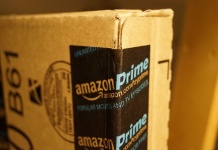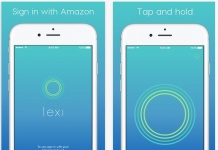Ever notice that shortly after you get a new ability, suddenly it’s the end of the world if you can’t use it? People who grew up having to dial in from home or trudge in to a computer lab to get on the Internet now go nuts if they get stuck somewhere without wi-fi or cellular data reception. (Or at least, I do.) And then there’s Gabe’s complaint from the current Penny Arcade, (Tycho’s suggested solution is a little…extreme).
Amazon Prime has been amazingly successful for Amazon, and it’s a pretty amazing bargain for consumers, too. $79 per year for the ability to get stuff shipped via 2-day for free? (You’d pay more than that in standard shipping costs if you didn’t scrupulously make sure every order hit the $35 minimum.) Plus streaming movies and a library checkout of an e-book per month? What a deal, huh? Then you run into the problem of some things not being available through Prime. I’ll admit, I’ve been a little grumpy sometimes when I actually had to pay shipping costs. (Like I never had to before, right?)
But I experienced a different kind of Prime-related buyer’s remorse this holiday season, or perhaps buyer’s premorse, which I hadn’t expected. When I would go to order one of my favorite movies as a Christmas present for a friend, I’d get the notification that the movie was available in free streaming for Amazon Prime subscribers…and then I was like, “Why would I want to buy them something they can already watch for free?” So I would look for something else.
But that certainly isn’t stopping other businesses from trying to replicate the Amazon Prime experience, or even beat it. ReadWriteWeb has some coverage of companies that are using technology to try to make their customers’ gratification as instant as possible. Uber, the car-pooling pseudo-taxi service, is expanding to more towns. Businesses offering home delivery of various goods are popping up in different cities. Even Amazon has started offering Sunday delivery of Prime items in some areas.
The on-demand trend has found its way into publishing as well. MasterCard announced a partnership with Condé Nast in October that allows readers of digital magazines to purchase items directly from an advertisement or article. The partnership, dubbed ShopThis, debuted on the tablet November edition of Wired.
There’s a dark side to all this convenience: Researchers are suggesting that the ease of commerce on mobile devices and the abundance of choice may be spurring us to buy more.
Amazon would probably agree. Last March, Time reported customers spent as much as 150% more at Amazon after becoming Prime members, including buying things from Amazon they previously would have bought somewhere else.
Regardless of what might seem like a net loss, Amazon Prime has been and continues to be a hugely profitable enterprise for the e-retail giant. A Prime member now makes $1,224 in Amazon purchases each year, on average, compared with $505 for non-Prime customers. After factoring in costs incurred for shipping and streaming, the average Prime member yields Amazon $78 more in profits than other customers, according to Morningstar. Yep, it’s nearly equal to that $79 membership fee.
And Tycho from Penny Arcade says much the same thing in his blog post accompanying the comic:
Amazon was already an engine designed to maximally wring out the impulse purchase; that was always true. The only thing that keeps people from buying everything else on Ormazorm is shipping, which we can think of as a tax levied by an oppressive and fundamentally unjust physical universe. Obviate this, and you become like as unto a God. We’re all aware that this is its function, this tactical obliteration of the Danegeld we pay to immoral, ultimately illusory three dimensional space. But it’s such a simple maneuver, enabled by the profundities of their scale, that it’s worth the moment we take to look at it. There are benefits like the Kindle Lending Library that I haven’t incorporated into my life, because I don’t have a Kindle, but God Damn if a Kindle don’t get to lookin’ mighty good under th’ prevailin’ conditions. Amazon Instant Video has a long way to go, but what am I gonna say about it, other than “I expect them to weaponize this service to the extent that it will become a legitimate counterpoint”? If you live where I live, you hear things. I think I know what’s next for them, and it’s oblique. I do not get them. These people are fucking scary, the end.
As technology marches on, delivery is only going to get faster. Maybe package delivery by drone seems unlikely now, but give it a couple of decades and they’ll either figure out how to make it work, or replace it with something even better. (Catapults, perhaps?) And people will buy more and more, and feel more and more entitled to speedy deliveries they could never have had just a few years before.


































One small note: Yeah, Amazon lets you check out “free” books. Only you have to be using one of their proprietary pieces of hardware to do it.
If you happen to be using the Kindle app on a smartphone?
Nope.
@Stephen- If you’re referring to the Kindle Owner’s Lending Library, then yes, the name of that particular program is a clue that you need to access it on a kindle device.
If you are referring to the Kindle First program, then no, you do not need a kindle device to take advantage of that program. You do need to have prime subscription.